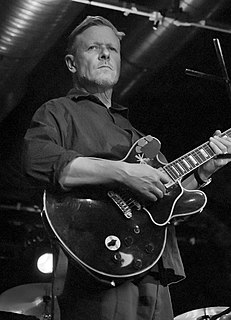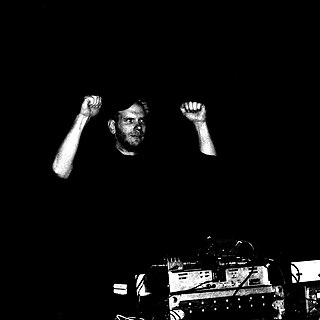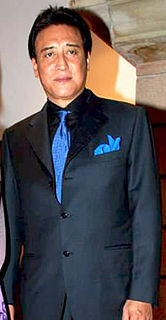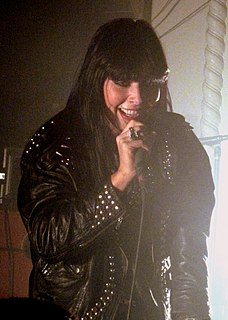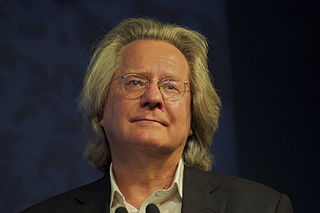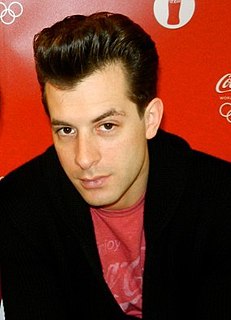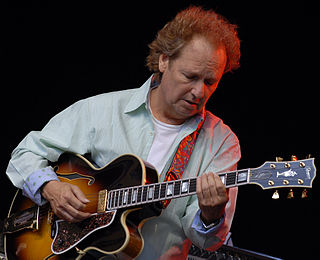Top 566 Gibson Guitars Quotes & Sayings - Page 10
Explore popular Gibson Guitars quotes.
Last updated on April 16, 2025.
It's good to be able to deal with it [anger] somehow other than drinking, fighting, crashing cars, hitting your kid, your wife, your husband, your whatever. Paintbrushes, pens, movie cameras, guitars, microphones, typewriters -- these are good things. Weights. These are positive ways, good ways to deal with anger, frustration, alienation, rage. 'Cause all the other ways do nothing but hurt people.
I like loud electric guitars because I like how you can just lose your entire being in the sound. But I can't find myself in a situation where our band Swans is doing typical chord progressions - it just seems cliché to me. Even changing chords sounds like a cliché sometimes, though it happens occasionally in our music. But you find ways to push yourself into the sound through repetition. It doesn't stay the same. It morphs constantly.
Like, when we did Parliament and Funkadelic and Bootsy, it was actually one thing. But there were so many people that you could split them up into different groups. And then, when we went out on tour and they [the record companies] would see us all up there together - we had five, six guitars playing at one time, not including the bass! -, they said: "Wait a minute, that's just one whole group, selling different names!" But it wasn't - we had enough people in the group that each member would have a section to be another group. So now we're finally starting to get them to understand that.
Even on guitars I've had misfortunes. I never used to clip the strings on my guitar and then one day I accidentally poked my right eye with the E-string. My eye just wouldn't stop tearing up and I could barely keep it open. The doctor said I didn't do any major damage, but I had to wear a patch for a little while. I still have a tiny red mark on my eyeball from it; I'm still not sure it's the same.
I don't mind when people are telling me about their 1971 Firebird, but it's the same thing as people telling me about their car or something. It's fine if you have an interest. By talking with me, though, you could be interviewing a novelist about guitars. It's the same thing, except I don't write that well either.
So one time for my disillusioned artists, I hear ya Two times for the kid that air-guitars in the mirror Three times for the 9-to-5-in' bus ridin' dudes And four times for my dreamers, yo I'm just like you That's why I sing for my queens with their own pair of wings My brothers flyin' beside me, drama behind me Mama tried to find me, she inquired emphatically I was in the sky with all these other ghetto kids, defying gravity, uh
I used a fifties Les Paul custom on most of the stuff. I also used a Strat, a newer Strat. I had a million guitars in there but I used the Strat & the Les Paul in just about everything. There were a lot of different amp choices, I was working with a pro tools plug-in which is like an amplifier stimulator. The possibilities with something like that are just endless.
When Derek Miller and I started working together, we had a very clear vision for the sound of the band. It was one which combined our favorite musical elements: driving guitars, bombastic beats, and female vocals. We've always been interested in making music that is essentially pop but that steps outside of the traditional formula into a stranger, more abrasive world. We love that our music makes people dance with complete abandon and feel empowered. It's very uninhibited music, and that's what makes it so fun.
The disenfranchised offspring, along with an entire ageless class of human discards, know only that they are doomed. They are drawn to spikes and pentagrams, gasoline, guitars screaming like whips, MIDI-programmed Thanatos, with sufficient amplitude to occupy that hollow space where consciousness once resided. These Dionysians obliterate themselves by removing filters, ultimately becoming insensate with sensation. This mode of behaviour originates in the superstitious belief that transcendence is acquired in the precise ratio by which reason is destroyed.
You know, where I come from, an antique, to be called an antique, it has to be at least a hundred years old. That's a law: before you can call something an antique, it has to be a hundred years old. In L.A., something that's been around for a couple of weeks is an antique. It's true! People are like, Look at this old-fashioned iPod. Look at this! It's the size of a man's hand! Ha ha ha ha. Back then-back then, people thought Mel Gibson was just acting crazy. It was a very different time.
To me, the producer is there to make sure the album gets done and gets done as good as possible. So if that means that you have to help write a bridge or help write a part, that's what you do. If that means you help tune the guitars, then that's what you do. If that means all you do is tell the band their takes are good and they should stop f——— with things, then that's what you do. If it means you don't do anything except make sure the band doesn't fight, then that's what you do. Sometimes it's a little more stressful than others, but for the most part, you just don't complain about it and you just get it done.
One thing I loved about New Zealand was the indoor/outdoor lifestyle of the place. I remember going from Xboxing, jamming out on guitars and drum machines in my buddy's apartment, to a bike ride through the parks and up and down the streets all over the city, to the ocean, right into the water. I remember we were swimming outer ways and we got to a certain place where we wanted to see - or I wanted to see - how deep the water was.
We were just amazed we were putting out a record. We were, and are, still learning. But we've never cared much for professionalism as long as the energy was there. Like our live shows: We're out of tune and use a lot of feedback. That's not on purpose or because we don't care, we're just musically and rhythmically retarded and we play so hard that we can't tune our guitars fast enough.
Some make their worlds without knowing it. Their universes are just sesame seeds and three-day weekends and dial tones and skinned knees and physics and driftwood and emerald earrings and books dropped in bathtubs and holes in guitars and plastic and empathy and hardwood and heavy water and high black stockings and the history of the Vikings and brass and obsolescence and burnt hair and collapsed souffles and the impossibility of not falling in love in an art museum with the person standing next to you looking at the same painting and all the other things that just happen and are.
I was listening to Jimi Hendrix and Pink Floyd, because that was new music for me. I really hadn't been up on them. I mean, I'd heard of them, but I wasn't up on their music. And I kept listening to Radiohead, and I was like, Man, I want to make hip-hop that feels like Radiohead. I want to make hip-hop that can use guitars and soul and jazz and just fuse it all together.
Sitting around home I mostly play acoustic. I've got seven or eight guitars of various sorts, including a baritone. Sometimes at home, because a guitar is just lying around, that's the guitar I pick up rather than actually choosing something. I try to plan ahead for my laziness by leaving interesting things scattered about. If I leave a baritone guitar lying around, that's the one I'll pick up, and I'll start writing baritoney things.
Nowadays, by contrast, Christianity specialises in soft-focus mood music; its threats of hell, its demand for poverty and chastity, its doctrine that only the few will be saved and the many damned, have been shed, replaced by strummed guitars and saccharine smiles. It has reinvented itself so often, and with such breathtaking hypocrisy, in the interests of retaining its hold on the gullible, that a medieval monk who woke today, like Woody Allen's Sleeper, would not be able to recognise the faith that bears the same name as his own.
Rhythms, beats, etc., are fundamentally central to my creative drive: my first instrument was the drums, nearly every band I have been involved in or at the helm of, is driven by rhythm, my band is driven entirely by rhythm, machine rhythm, and the purpose of the rock instrumentation is literally to speak the beats, to emulate the rhythms with guitars and bass, with very little articulation, and without being 'progressive'.
It was 2002, we all got guitars for Christmas and started playing in my garage that summer, rehearsed there and in a warehouse for a bit for about a year. We did our first gig in June 2003 and we played a few gigs in and around Sheffield for a bit then started doing gigs outside of Sheffield about this time last year, recording demos while all this was going on.
So when I was working with Amy Winehouse on "Back To Black," you know, she had all these beautiful songs, incredibly well-written and just her on an acoustic, nylon-string guitar. And she'd play them for me, and then I would kind of drum up my idea of what I thought - make a demo with what I thought the drums should be doing, the guitars - like, quite a crude demo.
I watched the video [ with my first commercial] when I was 20, and in the video, there are two families. The first family is this smiling blond Partridge family, a Californian/Aryan kind of thing, all playing guitars, all singing together and harmonizing. And then, there's my family - and in my family, it starts with my mom saying that she feels like a drill sergeant sometimes, and she's yelling at one of my brothers to stop hitting another one of my brothers. It's just like, "Great, we're that family." It felt a little Simpsons versus Flanders.
There's a very old recording maxim that goes, 'Distance makes depth.' I've used that a hell of a lot-whether it's tracking guitars or the whole band. People are used to close-miking amps, but I'd have a mic out around the back, as well, and then balance the two. Also, you shouldn't have to use EQ in the studio if the instruments sound right. You should be able to get the right tones simply with the science of microphone placement.
We used to have massively long discussions about how we should stand on stage. Should we stand with our legs apart? No, all the guys with guitars in skinny jeans stand with their legs apart, and you'd think, 'We can't stand like that.' We'd spend hours and hours, days and days, discussing how to stand.
I really wanted to, but I just didn't understand how people became comedians. I kind of thought it was something you were born into. And so I wanted to be a veterinarian or an architect. I wanted to be in a band, and for some reason I could understand how you could be in a band because I had guitars and all my friends played music. Comedy was a secret want, but it wasn't anything I pursued.
Well, Smoke n' Mirrors has very much a world music flavor and it doesn't park itself in one country. It borrows heavily from the Brazilian angle, which is dear to my heart, and I recorded several albums with that flavor. Probably even more so than the Brazilian flavor, there's an African, South African and West African influence and on a couple of other tracks there's some Latin flavor and there's some Indian tables on one track, all centered around my jazz guitar and acoustic guitars, and very much a Lee Ritenour sound.
Then, you know, the other more-traditional role of the producer in, like, the kind of Quincy Jones sense is kind of part arranger. So you're coming up with, like, these - you hear these songs that are quite bare-bones, and you dream up what's the band doing? What's the rhythm section doing? What's the guitars, strings, pianos - that sort of thing. It's almost like a little toolbox.

